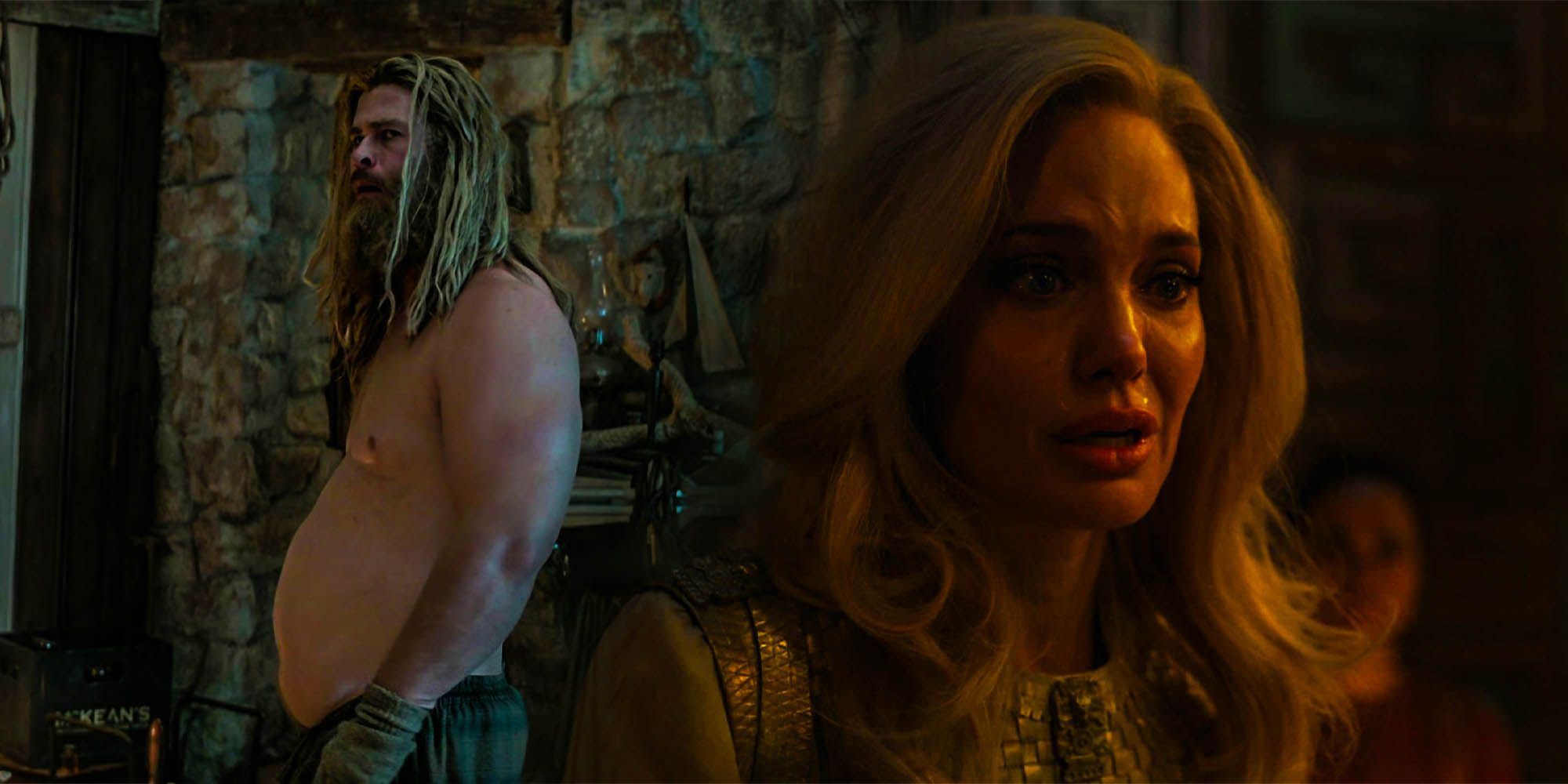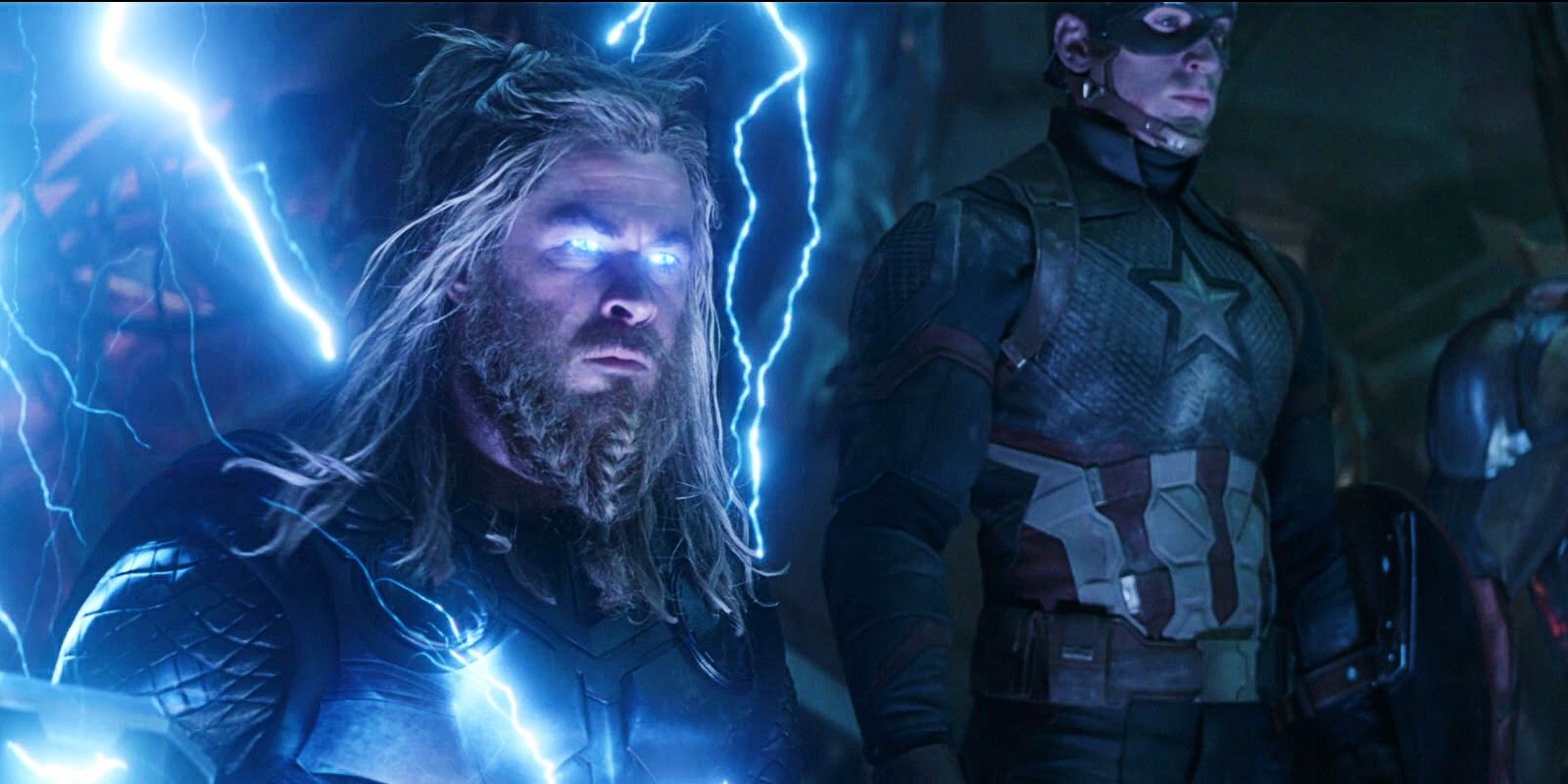Prior to Eternals, the MCU hadn't done much to address trauma and mental illness in its characters, and much of what it had addressed was done for laughs. There have been alcoholics who behave badly for comedic effect and an entire civil war caused by the inability to communicate effectively about grief. Perhaps the most glaring example of this trend was Thor's story arc in Avengers: Endgame.
In The Eternals, director and screenwriter Chloé Zhao put Thena's struggle with Mahd Wy'ry (pronounced "mad weary") front and center. Thena and the other Eternals initially believe her illness is caused by the weight of too many memories over the course of their millennia-long lives. However, it is eventually revealed that she is remembering prior missions on other planets that ended in the destruction of the people the Eternals had spent thousands of years protecting. Mahd Wy'ry is the MCU equivalent of immortal PTSD, and Thena's struggles with it are handled beautifully in Eternals.
Prior to Phase 4, the most obvious battle with mental illness was Endgame's treatment of Fat Thor, and while there were plenty of laughs at Thor's expense, his grief and pain were only mocked by the remaining Avengers. It is obvious to viewers that Thor is suffering. Depression, PTSD, and probably an eating disorder are all bearing down on him, and his friends, the heroes who will save the universe, treat him like a joke. Thor had watched both his parents die, his home fall, his murderous sister destroyed, his brother and his best friend killed, and half of the universe's population blipped. When he had the chance to undo it, he reacted out of anger - losing the one chance the Avengers thought they had to undo Thanos' destruction. He was carrying the weight of the world and he needed help, and his friends treated him like his pain was weakness. Only Frigga, his long-dead mother, addressed the truth of his pain at all, saying, "Everyone fails at who they are supposed to be, Thor. A measure of a person, of a hero, is how well they succeed at being who they are." It is only when he is shown love, and the acknowledgement of his grief, that he starts to recover.
Thena, however, is treated gently from the first moment that Mahd Wy'ry started to affect her. Though she poses a danger to herself and others, the fact that Gilgamesh vows to stay with her always, to keep her safe and keep others safe from her, changes everything for Thena. Her illness isn't something to be ashamed of, it is a part of who she is. Those that love her, accept it, and accommodate her for it. Thena's relationship with Gilgamesh provides her with the strength she needs to come back when the team needs her. Even better, the Eternals allow her to be the one who makes jokes about her condition - laughing with her, not at her. By changing the narrative on her mental illness, the Eternals gave her the time and healing that she needed.
The MCU has so many interweaving stories and characters, and each character has a lifetime of trauma that they've experienced, witnessed, and worked through. The likelihood that the characters will continue to go through difficult times, including dealing with mental health struggles, is high. Phase 4 has already shown a different approach to grief in WandaVision and the willingness to create female superhero stories in Black Widow. Thankfully, Marvel has also turned the corner from the mocking scorn of mental illness of Avengers: Endgame to the loving empathy of Eternals.


